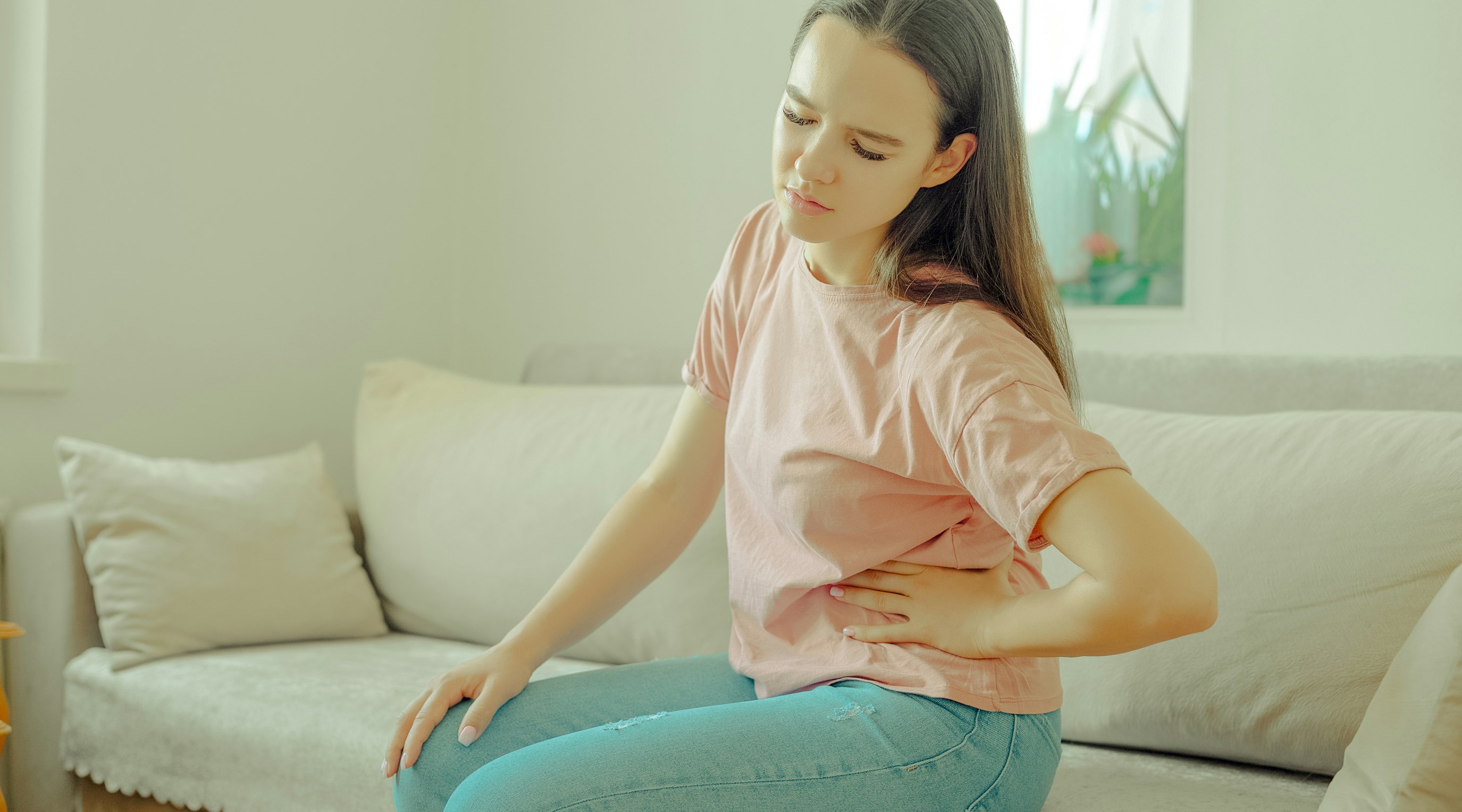Can CBD potentially reduce scoliosis pain?
7 min read
Kerry Charron
Scoliosis is a condition in which a lateral twisting curve develops in the spine. Most often developing in children or teenagers between the ages of 10 and 15 (although it can affect people of any age), scoliosis can cause pain and other symptoms such as back fatigue, decreased mobility, rib cage prominence, and difficulty breathing.
Contents
Although scoliosis is a relatively common condition, it is also a difficult one to treat. Traditional treatments such as braces and surgery can be expensive and invasive, and may not provide lasting relief from the pain associated with the condition. Pharmaceuticals, such as painkillers and anti-inflammatories also make up a large part of the conventionally agreed-upon treatment options, but these often come with some pretty intense and unwanted side effects.
Many patients are seeking therapeutic options to supplement conventional approaches to treating scoliosis pain. Recently, CBD has emerged as a potential complementary therapy option to address scoliosis-related pain, and it is also showing promise in reducing the severity of other scoliosis-related symptoms.
Here, we will discuss all the currently available research on using CBD for scoliosis-related pain relief – how it works, what its benefits are, and more.
How does the pain related to scoliosis manifest?
Scoliosis is a condition in which the spine develops an abnormal curve. It is not clear what causes scoliosis in most cases. These cases are called idiopathic scoliosis. Scientists believe some contributing factors to scoliosis include cerebral palsy, muscular dystrophy, and a connective disorder of the tissues called Margan’s syndrome.
It is possible that the spine twists abnormally due to a possible lack of muscle fibre on one side of the back. Another possible theory is that the vertebrae do not develop properly. An anatomically shorter leg can also cause a spine curvature.
Musculoskeletal pain increases as the spine becomes more malformed with scoliosis. Adults with scoliosis often present with heavy back pain, and although younger people may have mild or moderate pain, most scoliosis patients experience increases in pain levels as they age. This pain can affect not only the back but also other areas of the body, such as the hips and shoulders.
How does CBD work as a potential treatment option?
CBD is one of the over 110 cannabinoids produced by both cannabis and hemp plants. It has been shown, in recent research, to offer a multitude of potential therapeutic properties including anti-inflammatory, analgesic, and anxiolytic effects.
CBD may also offer relief from pain caused by scoliosis due to its interaction with the endocannabinoid system (ECS). The ECS is the largest regulatory system in humans. It is composed of two types of receptors (CB1 AND CB2), located in many areas throughout the body, including the brain and spinal cord. Our own endocannabinoids interact with the ECS, leading to a range of effects, including pain modulation and inflammation reduction.
CBD has been shown to interact with the ECS receptors, and to also slow down the enzymatic breakdown of our own cannabinoids, leading to potential relief from a range of symptoms. CBD could potentially reduce the amount of pain felt from scoliosis in several ways, including reducing inflammation and helping to relax tight muscles.
CBD is taken by many people for its overall wellness benefits. Some people take CBD for specific complaints such as pain, inflammation, anxiety, and other health conditions. If a patient has additional health concerns such as sleep disruption due to pain, then CBD can provide additional benefits such as relaxation and deeper sleep.
Studies on the effectiveness of CBD for pain relief
Although prior cannabis and hemp regulations hindered research efforts to explore CBD’s therapeutic promise, policy reform is now allowing for more clinical trials. Emerging data shows that CBD is potentially effective at relieving pain. Scientists are still unlocking the mystery behind the mechanisms of CBD’s effects on pain, but studies indicate that CBD safely and effectively supports pain management.
It has also shows promise in reducing inflammation, which may be extremely beneficial for people dealing with scoliosis. The curvature of the spine can aggravate muscle tissue and intensify inflammation, leading to intense pain.
CBD reduces the levels of pro-inflammatory cytokines, and inhibits T cell proliferation. While this study doesn't focus on scoliosis pain, it does show the potential of CBD to reduce inflammation in the body. Studies also indicate that CBD is beneficial for people suffering from painful spine related conditions such as degenerative disc disease and spinal stenosis.
CBD has also been proven to reduce chronic or acute pain, so it may help scoliosis patients achieve a better quality of life on a daily basis. Pain is a complex sensation. It encompasses several dimensions, influenced by psychological and biological factors. CBD helps reduce mental anxiety about experiencing chronic pain, and it supports immune and nervous system functions.
CBD may also be effective at reducing anxiety, which sometimes accompanies chronic pain. A Danish study found that patients benefited significantly from oral cannabinoid therapy, and that the combination of THC and CBD seemed more effective than cannabinoid monotherapy overall.
Comparison with other pain relief options
Other pain relief options include over the counter and pharmaceutical medications that are somewhat effective at reducing pain. However, patients often find that these medications have harsh side effects. Patients may become tolerant to the pharmaceutical or over the counter pain medication’s effectiveness and require increased doses to lessen pain. As a consequence, patients may become overly dependent on pharmaceutical medication to control pain.
Dosage and administration of CBD for scoliosis pain
Patients should make sure they discuss dosing recommendations with their GP. Most GPs recommend starting with small doses on a daily basis. Current research recommends no more than 25 mg per day to begin CBD treatment. However, every patient is different, so height, weight, medical conditions, severity of symptoms and dose strength and frequency are critical factors in determining the right amount for each patient.
When patients are ready to increase the dosage, they should adjust the dose by small increments over the course of several days or a week. This process is called titration, and it allows a CBD user to get familiar with how the CBD product affects them. The goal of titration is that the patient determines the most optimal dose amount without any excessive use, in order to sustain health and reduce the risk of overdependence or tolerance build up.
With that said, it is highly recommended that before starting any new pain treatment option, patients first discuss it with their doctors, especially if they take any other medications.
Potential Side Effects of CBD
CBD can cause dry mouth, diarrhoea, nausea, and drowsiness. Most patients report that these side effects are temporary and manageable.
Overall, CBD is considered effective. The World Health Organization (WHO) conducted an extensive study of CBD and ruled it safe and well tolerated. The WHO also determined that CBD had low potential for abuse or dependence. Therefore, patients can be reassured that CBD will not cause extreme adverse reactions for most patients.
CBD does have the potential to negatively interact with certain pharmaceuticals, so always discuss your full treatment regime before beginning CBD administration. CBD has been known to interfere with some antidepressants, anti seizure medications, benzodiazepines, and blood pressure medications.
Conclusion
While there is research pointing to the potential effectiveness of CBD in reducing scoliosis pain, more research is needed to fully understand the mechanisms behind CBD’s actions. Overall, studies do show that CBD is safe and well tolerated, even at higher doses. CBD can also be combined with other pain relief medications or treatments to potentially reduce the patient’s reliance on pharmaceutical medications.
While CBD may not be a “cure all” for scoliosis pain, it may be a useful complementary therapy. Patients should always discuss their treatment options with their doctor before taking any new medications or supplements, including CBD.
Releaf is committed to helping you access the benefits of a medical cannabis service. Our monthly packages are tailored to your cannabis prescription, and we offer specialist consultations for medical cannabis and a unique medical cannabis card for protection.
Share article
Did you like this article?
It is important to seek medical advice before starting any new treatments. The patient advisors at Releaf are available to provide expert advice and support. Alternatively, click here to book a consultation with one of our specialist doctors.
Elevate your wellness with medical cannabis
Get comprehensive care, convenience, and confidence with an all-in-one treatment plan.
Am I eligible?Authors
Kerry, with experience as a medicinal cannabis cultivation technician and expertise in business licensing applications, is passionate about developing educational content and advocating for better access to medical cannabis worldwide.
Editorial Policy
All of our articles are written by medical cannabis experts, guided by strict sourcing guidelines, and reference peer-reviewed studies and credible academic research. Our expert clinical team and compliance specialists provide valuable insights to ensure accuracy when required. Learn more in our editorial policy.
Need more help?











